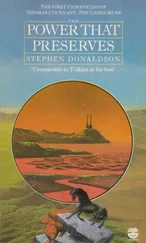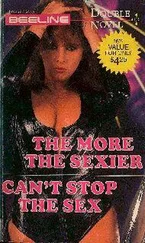The workshop had been in session for a few weeks before I joined, but Charles assured me that newcomers were welcome. The group was more diverse than I expected. There was a fashion designer with long, curly hair, bright lipstick, and pointy snakeskin boots; a secretary with thick glasses and a clipped, matter-of-fact manner, who talked a lot about her Mensa membership; a couple of investment bankers, tall and athletic; an actor with black hair and vivid blue eyes who bounded cheerfully across the room in his Puma sneakers but claimed to be terrified the entire time; a Chinese software designer with a sweet smile and a nervous laugh. A regular cross-section of New Yorkers, really. It might have been a class in digital photography or Italian cooking.
Except that it wasn’t. Charles explained that each of us would speak in front of the group, but at an anxiety level we could handle.
A martial arts instructor named Lateesha was first up that evening. Lateesha’s assignment was to read aloud to the class from a Robert Frost poem. With her dreadlocks and wide smile, Lateesha looked as if she wasn’t afraid of anything. But as she got ready to speak, her book propped open at the podium, Charles asked how anxious she was, on a scale of 1 to 10.
“At least seven,” said Lateesha.
“Take it slow,” he said. “There are only a few people out there who can completely overcome their fears, and they all live in Tibet.”
Lateesha read the poem clearly and quietly, with only the slightest tremor in her voice. When she was finished, Charles beamed proudly.
“Stand up please, Lisa,” he said, addressing an attractive young marketing director with shiny black hair and a gleaming engagement ring. “It’s your turn to offer feedback. Did Lateesha look nervous?”
“No,” said Lisa.
“I was really scared, though,” Lateesha said.
“Don’t worry, no one could tell,” Lisa assured her.
The others nodded their heads vigorously. Couldn’t tell at all , they echoed. Lateesha sat down, looking pleased.
Next it was my turn. I stood at a makeshift podium—really a music stand—and faced the group. The only sound in the room was the ticking of the ceiling fan and the blare of traffic outside. Charles asked me to introduce myself. I took a deep breath.
“HELLOOO!!!!” I shouted, hoping to sound dynamic.
Charles looked alarmed. “Just be yourself,” he said.
My first exercise was simple. All I had to do was answer a few questions that people called out: Where do you live? What do you do for a living? What did you do this weekend?
I answered the questions in my normal, soft-spoken way. The group listened carefully.
“Does anyone have any more questions for Susan?” asked Charles. The group shook their heads.
“Now, Dan,” said Charles, nodding at a strapping red-haired fellow who looked like one of those CNBC journalists reporting directly from the New York Stock Exchange, “you’re a banker and you have tough standards. Tell me, did Susan look nervous?”
“Not at all,” said Dan.
The rest of the group nodded. Not nervous at all , they murmured—just as they had for Lateesha.
You seem so outgoing , they added.
You came across as really confident!
You’re lucky because you never run out of things to say .
I sat down feeling pretty good about myself. But soon I saw that Lateesha and I weren’t the only ones to get that kind of feedback. A few others did as well. “You looked so calm!” these speakers were told, to their visible relief. “No one would ever know if they didn’t know! What are you doing in this class?”
At first I wondered why I prized these reassurances so highly. Then I realized that I was attending the workshop because I wanted to stretch myself to the outer limits of my temperament. I wanted to be the best and bravest speaker I could be. The reassurances were evidence that I was on my way toward achieving this goal. I suspected that the feedback I was getting was overly charitable, but I didn’t care. What mattered was that I’d addressed an audience that had received me well, and I felt good about the experience. I had begun to desensitize myself to the horrors of public speaking.
Since then, I’ve done plenty of speaking, to groups of ten and crowds of hundreds. I’ve come to embrace the power of the podium. For me this involves taking specific steps, including treating every speech as a creative project, so that when I get ready for the big day, I experience that delving-deep sensation I enjoy so much. I also speak on topics that matter to me deeply, and have found that I feel much more centered when I truly care about my subject.
This isn’t always possible, of course. Sometimes speakers need to talk about subjects that don’t interest them much, especially at work. I believe this is harder for introverts, who have trouble projecting artificial enthusiasm. But there’s a hidden advantage to this inflexibility: it can motivate us to make tough but worthwhile career changes if we find ourselves compelled to speak too often about topics that leave us cold. There is no one more courageous than the person who speaks with the courage of his convictions.
6
“FRANKLIN WAS A POLITICIAN, BUT ELEANOR SPOKE OUT OF CONSCIENCE” Why Cool Is Overrated
A shy man no doubt dreads the notice of strangers, but can hardly be said to be afraid of them. He may be as bold as a hero in battle, and yet have no self-confidence about trifles in the presence of strangers.
CHARLES DARWIN
Easter Sunday, 1939. The Lincoln Memorial. Marian Anderson, one of the most extraordinary singers of her generation, takes the stage, the statue of the sixteenth president rising up behind her. A regal woman with toffee-colored skin, she gazes at her audience of 75,000: men in brimmed hats, ladies in their Sunday best, a great sea of black and white faces. “My country ’tis of thee,” she begins, her voice soaring, each word pure and distinct. “Sweet land of liberty.” The crowd is rapt and tearful. They never thought this day would come to pass.
And it wouldn’t have, without Eleanor Roosevelt. Earlier that year, Anderson had planned to sing at Constitution Hall in Washington, D.C., but the Daughters of the American Revolution, who owned the hall, rejected her because of her race. Eleanor Roosevelt, whose family had fought in the Revolution, resigned from the DAR, helped arrange for Anderson to sing at the Lincoln Memorial—and ignited a national firestorm. Roosevelt was not the only one to protest, but she brought political clout to the issue, risking her own reputation in the process.
For Roosevelt, who seemed constitutionally unable to look away from other people’s troubles, such acts of social conscience were nothing unusual. But others appreciated how remarkable they were. “This was something unique,” recalled the African-American civil rights leader James Farmer of Roosevelt’s brave stand. “Franklin was a politician. He weighed the political consequences of every step that he took. He was a good politician, too. But Eleanor spoke out of conscience, and acted as a conscientious person. That was different.”
It was a role she played throughout their life together: Franklin’s adviser, Franklin’s conscience. He may have chosen her for just this reason; in other ways they were such an unlikely pair.
They met when he was twenty. Franklin was her distant cousin, a sheltered Harvard senior from an upper-crust family. Eleanor was only nineteen, also from a moneyed clan, but she had chosen to immerse herself in the sufferings of the poor, despite her family’s disapproval. As a volunteer at a settlement house on Manhattan’s impoverished Lower East Side, she had met children who were forced to sew artificial flowers in windowless factories to the point of exhaustion. She took Franklin with her one day. He couldn’t believe that human beings lived in such miserable conditions—or that a young woman of his own class had been the one to open his eyes to this side of America. He promptly fell in love with her.
Читать дальше
![Сьюзан Кейн Quiet [The Power of Introverts in a World That Can't Stop Talking] обложка книги](/books/33084/syuzan-kejn-quiet-the-power-of-introverts-in-a-wo-cover.webp)











